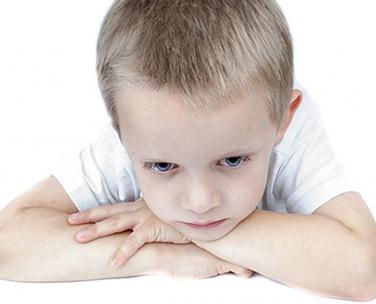
The following op-ed was published in the Raleigh News & Observer, Charlotte Observer, and AOL News.
A child’s life should be filled with sleepovers and laughter with friends on playgrounds. Yet the stark reality is that children have a significant chance of being abused by their caregivers, witnessing violence in their homes and communities, being victims of violence themselves, or being cared for by adults who suffer from drug and alcohol addiction.
And yes, some young girls are making the choice to keep or terminate a pregnancy as victims of sexual abuse.
All the noise surrounding the abortion debate fails to address a fundamental truth — we as citizens of this country must decide how to define and support the sanctity of life.
As pediatricians, a foster parent, and a licensed clinical social worker with decades of experience serving children, we know that the sanctity of life cannot and must not be defined by caring solely for the rights of the unborn while turning a blind-eye to children after their birth.
If we value life, we value the woman before she is pregnant, withholding judgment until we walk her path. If we value life, we include men’s roles in creating that life.
If we value life, we value every child’s opportunity to grow without fear, abuse and trauma.
If we value life, we provide for families and communities when children need a home. If we value life, we support quality, affordable childcare. If we value life, we support family planning.
And if we value life, we cannot sit behind white picket fences and use “sanctity of life” as a catchphrase. We must act upon that value.
It requires courage to unsparingly witness the experiences of pregnant women and children without prejudice or bias. It requires that we not turn away from the lives of others who may not look like us, to recognize that their plight could have easily been our own.
Our healthcare system rightly diagnoses and treats diseases such as asthma and diabetes. Yet we fail to consider the impact of a different kind of chronic suffering. In 2019, approximately 656,000 children were found to be victims of abuse and neglect, and 252,000 children entered foster care.
What is the real-life impact of these numbers? Youth in foster care have increased rates of major mental health diagnoses. Over half of foster care youth have experienced arrest, conviction or an overnight stay at a correctional facility by the age of 17. Only 2.5% graduate from college. Fifty percent of our nation’s homeless population has spent time in foster care.
Consider the moral and financial costs simply because we failed to value the right to communities free of violence and abuse.
Regardless of one’s viewpoint on the end of Roe v. Wade, we hope that every individual will consider that valuing life encompasses more than this single issue. We must recognize that policies implemented by elected officials matter, that breaking cycles of abuse and violence requires significant resources, that the value we place on our children’s lives is inextricably linked to the morality of our society, and that decisions from seemingly faraway places like the Supreme Court have a direct impact on the lives of families and children.
Consider these issues with empathy and an open mind so that “sanctity of life” is defined by how we treat everyone throughout their lives. Your time, your resources, and your vote determine our children’s future.
Social worker Scott Snider and physicians Lindsay Terrell and Aditee Narayan are clinicians on the Duke Child Abuse and Neglect Medical Evaluation Team. The views expressed are theirs and not their employer's.